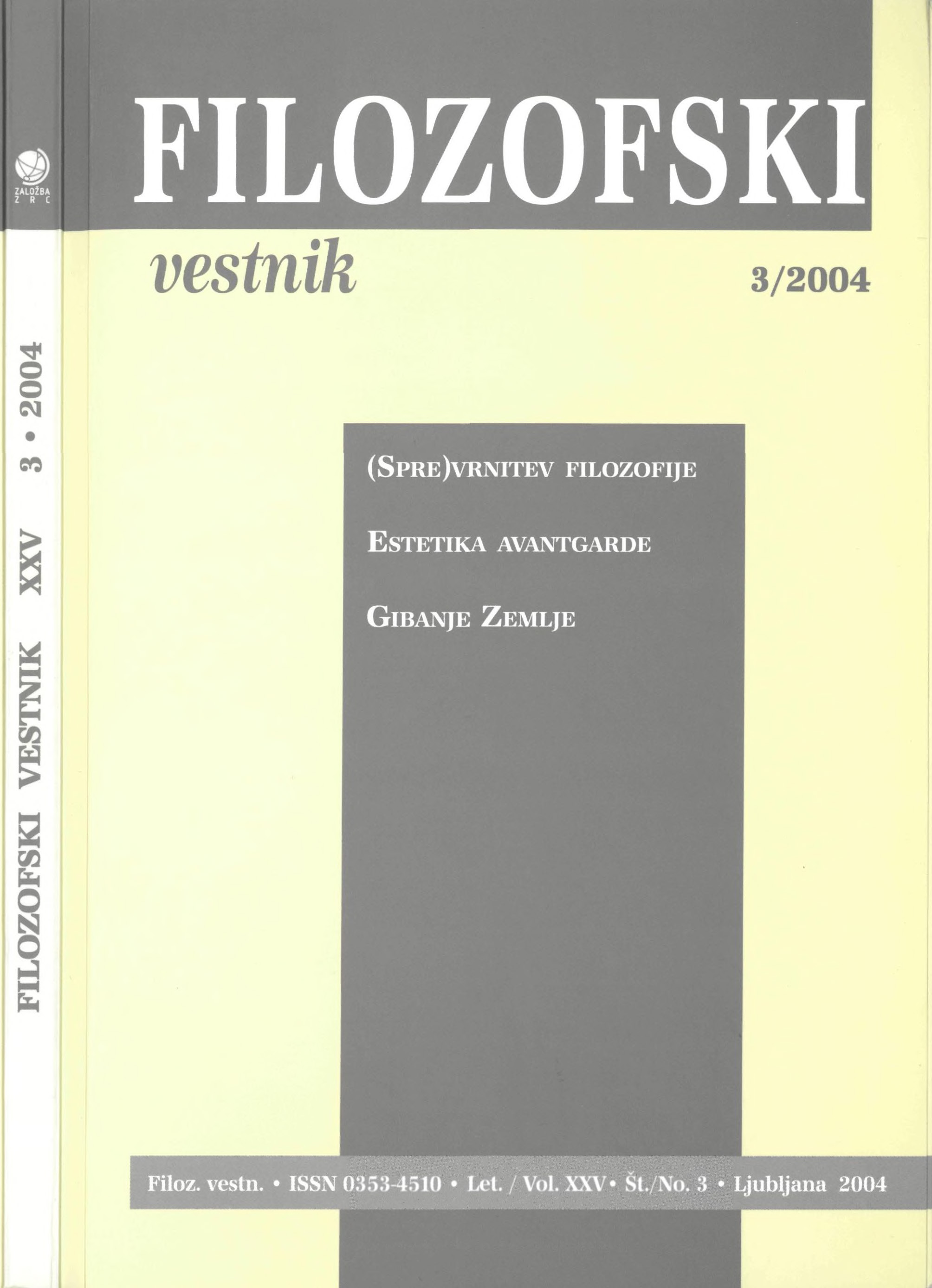Kritični postopki: modernizem, avantgarda, neoavantgarda in protokonceptualizmi
Ključne besede:
avantgarda, neoavantgarda, modernizemPovzetek
V eseju obravnavamo status neovantgarde in protokonceptualizme v odnosu do zamisli modernizma in zgodovinskih avantgard. Z izrazom neoavantgarda poimenujemo ekscesne, eksperimentalne in emancipatorične umetniške prakse, ki so nastale: (1) kot rekonstrukcije, reciklaže ali revitalizacije specifičnih praks zgodovinskih avantgard, še zlasti dade in konstruktivizma; (2) kot konkretne, toda marginalno pozicionirane realizacije velikih modernističnih utopij in avantgardnih tehnoloških, emancipatoričnih, političnih in umetniških utopij; in (3) kot vzpostavljanje avtentičnih kritičnih, ekscesnih, eksperimentalnih in emancipatoričnih umetniških praks v hladnovojni klimi prevladujočega visokega modernizma. Zgodovinske avantgarde so se razvijale od konca XIX. stoletja do poznih tridesetih let XX. stoletja. Zanje je značilno ekscesno, eksperimentalno in inovatorsko umetniško delo v buržoazni industrijski družbi. Zgodovinske avantgarde so po eni strani predhodnica ali gonilna paradigma vzpostavljanja modernistične kulture, po drugi strani pa kritika tradicionalizacije modernizma znotraj buržoazne zmerne in stabilne modernosti, a tudi kanonizirane avtonomije umetnosti. Nasprotno, neoavantgarde nimajo več statusa predhodnice ali pobudniške paradigme v razmerju do moderne, temveč imajo značaj korektivne, alternativne, kritiške ali subverzivne prakse znotraj dominantnega visokega modernizma pozne- in postindustrijske družbe. Zato paradigem neoavantgarde ne moremo preprosto izenačiti z avantgardo iz druge roke, temveč jih je treba interpretativno preizprašati kot izvajanja različnih kritiških, emancipatoričnih, ustvarjalnih, proizvodnih ali behaviorističnih možnosti v umetnosti in kulturi visokega hegemonega modernizma. Proto-konceptualizmi so različni primeri ali pojavi v heterogenem polju neoavantgard. Proto-konceptualizme imenujemo tiste umetniške prakse, pri katerih prihaja do kritike in subverzije koncepta in fenomena narativne verbalne, vizualne, akustične ali behavioristične produkcije funkcije in učinkov avtonomnega visokoestetiziranega umetniškega dela.Prenosi
Podatki o prenosih še niso na voljo.
Prenosi
Objavljeno
2016-03-04
Kako citirati
Šuvaković, M. (2016). Kritični postopki: modernizem, avantgarda, neoavantgarda in protokonceptualizmi. Filozofski Vestnik, 25(3). Pridobljeno od https://ojs.zrc-sazu.si/filozofski-vestnik/article/view/4324
Številka
Rubrike
Estetika avantgarde
Licenca
Avtorji jamčijo, da je delo njihova avtorska stvaritev, da v njem niso kršene avtorske pravice tretjih oseb ali kake druge pravice. V primeru zahtevkov tretjih oseb se avtorji zavezujejo, da bodo varovali interese založnika ter da bodo povrnili morebitno škodo.
Podrobneje v rubriki: Prispevki





